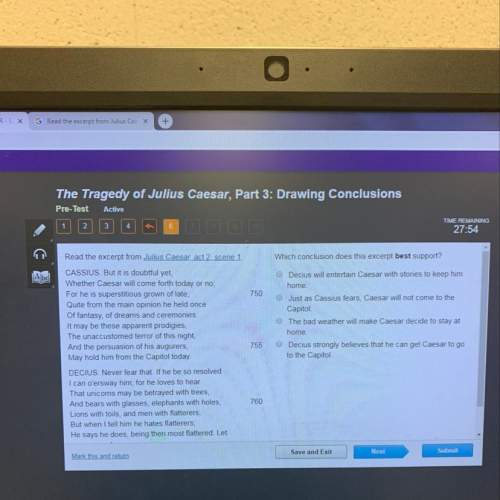
English, 19.01.2021 07:00, Levantine3667
Sometimes the work was hard; the implements had been designed for human beings and not for animals,
and it was a great drawback that no animal was able to use any tool that involved standing on his hind
legs. But the pigs were so clever that they could think of a way round every difficulty. As for the horses,
they knew every inch of the field, and in fact understood the business of mowing and raking far better
than Jones and his men had ever done. The pigs did not actually work, but directed and supervised the
others. With their superior knowledge it was natural that they should assume the leadership. Boxer and
Clover would harness themselves to the cutter or the horse-rake (no bits or reins were needed in these
days, of course) and tramp steadily round and round the field with a pig walking behind and calling out
"Gee up, comrade!" or "Whoa back, comrade!" as the case might be. And every animal down to the
humblest worked at turning the hay and gathering it. Even the ducks and hens toiled to and fro all day in
the sun, carrying tiny wisps of hay in their beaks. In the end they finished the harvest in two days' less
time than it had usually taken Jones and his men. Moreover, it was the biggest harvest that the farm had
ever seen. There was no wastage whatever; the hens and ducks with their sharp eyes had gathered up
the very last stalk. And not an animal on the farm had stolen so much as a mouthful.
I
Questions
1. Underline the words, phrases and/or sentences that are particularly expressive of the narrator's tone. What is the tone of
the passage?
2. What is the effect of such a tone? How does it add to our experience of reading the story?
3. Why do you think the author has chosen to tell the story from this particular point of view?

Answers: 2
Other questions on the subject: English

English, 21.06.2019 14:30, dubouuu
If you were starving, what would you do for food? "condensed milk" tells the story of a political prisoner in a russian gulag (a forced-labor camp) who is faced with a choice: stay in the gulag—working and starving—or escape from the prison and risk dying. what choice would you make? historical context: from 1929 to 1953, joseph stalin was the dictator of the soviet union. his goal was to transform the soviet union from a poor society into a world superpower. he used terror and violence to rule, and under his reign, millions of his own people died in work camps, from starvation due to famine, or by execution. select a detail to support the idea that russian gulags treated prisoners cruelly. prisoners faced choices. prisoners had to work. prisoners tried to escape. prisoners were starving.
Answers: 2

English, 21.06.2019 15:30, dragongacha777
If you were doing a report on the savannah’s of africa, which of the following websites would be your best resource
Answers: 1

English, 21.06.2019 16:40, jaleesalewis2008
Select the correct answer. which theme is evident in this excerpt from alfred lord tennyson’s narrative poem “the charge of the light brigade”? “forward, the light brigade! ” was there a man dismayed? not though the soldier knew someone had blundered. theirs not to make reply, theirs not to reason why, theirs but to do and die. into the valley of death rode the six hundred. a. the folly of ambition and greed b. the inability of humans to face death c. the heroism of unquestioning sacrifice d. the futility of obedience
Answers: 2

English, 21.06.2019 18:20, harveyangel123p2tjae
Which group or words is not a phrase? a.) leaving behind the dog b.) because she smiled at me c.) smashing into a fence d.) before the first test e.) pushing the sofa
Answers: 1
Do you know the correct answer?
Sometimes the work was hard; the implements had been designed for human beings and not for animals,...
Questions in other subjects:




Mathematics, 31.07.2021 02:30

Mathematics, 31.07.2021 02:30

Mathematics, 31.07.2021 02:30


Mathematics, 31.07.2021 02:30

Mathematics, 31.07.2021 02:30

Mathematics, 31.07.2021 02:30







